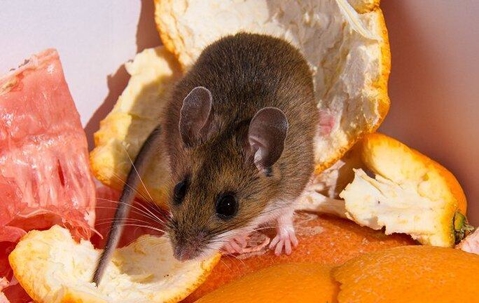What is your first thought when you look at a picture of a mouse? A good majority of people would say these pests are cute and cuddly. Now, what if there was a mouse on the floor right in front of you? You would probably have an immediately different opinion. What makes a wild mouse different from a caged one? It all comes down to the letter “s.” If you find no problem in owning a pet mouse but would hate to see a pest mouse inside your Salt Lake City home, this is what you need to know.
Why Pest Mice Are More Problematic Than Pet Mice
Cages keep mice away from mischief and poor life decisions. Just think about it. When you own a mouse as a pet, you monitor what they are putting in their bodies, what they are allowed to chew on, and how clean their environment is. However, in the wild, mice don’t care about personal hygiene, are not careful what they eat, and chew on anything and everything that stands in their way. These behaviors are all reasons for serious concern.
Mice Are Destructive
All mice are born with a pair of sharp front incisors. These teeth grow continuously and become stronger as they mature. By the time they are adults, mice will chew on anything and everything they can to keep their teeth worn down. These habits lead to considerable damage across homes. Some signs of rodent damage include gnaw marks on furniture, holes chewed through walls and into cabinets, holes bit into food boxes, outlets that mysteriously stop working due to severed wires, water damage related to gnawed on utility piping, torn up insulation, shredded books, and ripped fabrics.
Mice Are Dangerous
Mice are naturally dirty creatures, and if you know anything about dirty things, you know they are often hosting bacteria and other sickness vectors. As mice crawl around homes, they spread disease-causing organisms off their bodies and through their fecal matter and urine. Some of the most common diseases these pests transmit to humans include hantavirus, salmonellosis, tularemia, and lymphocytic choriomeningitis.
Mice also have a terrible habit of transporting fleas and ticks indoors. These small parasitic pests feed on blood and transmit several diseases, including Lyme disease, the bubonic plague, anaplasmosis, and murine typhus.
Some Ways To Prevent Mice
Preventing mice is often a long and arduous task. If you have some extra time on your hands and are willing to put in some effort, here are a few ways to deter these invasive pests from entering your home:
- Seal cracks and gaps in your home’s exterior foundation using a caulking gun and clumps of wire mesh.
- Fix damage to window/door screens.
- Make sure your exterior doors have door sweeps.
- Trim back vegetation and branches at least five feet from your home’s exterior.
- Eliminate clutter and debris around your yard.
- Fix leaky pining and fixtures.
- Repair damage to gutters and make sure they get cleaned annually.
- Keep your home tidy and clean.
- Avoid feeding your pets outdoors and clean out their bowls before going to bed each night.
- Store leftover foods inside airtight containers.
- Invest in rodent-proof lids for your trash cans.
To take your rodent prevention to the next level or to have a current infestation eliminated from your property, give the professionals at Pest Pro Pest Control a call. We will implement the necessary treatments around your Salt Lake City property, ensure that mice are shown the door, and know to stay out for good.

